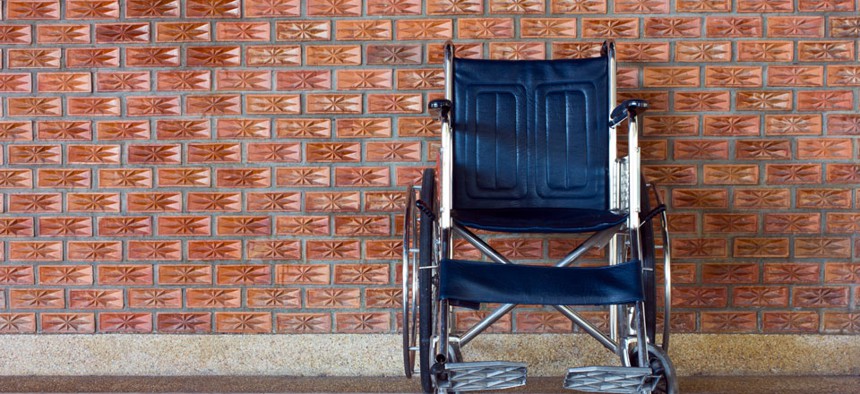
Sanchai Khudpin/Shutterstock.com
The Hidden Human Cost Of Post-9/11 Wars
There are more than 1 million people taking care of the country's newest veterans.
There are 5.5. million people taking care of veterans across the United States. They bathe and feed them, schedule their medical appointments, manage their finances, and watch after their children. They help war-weary soldiers become a part of civilian life again.
Almost 20 percent of them, or 1.1. million, are helping someone who served in the military since the Sept. 11 terrorist attacks, and they are unlike other generations of military caregivers, according to a new study from Rand, a nonpartisan policy research group. The study, which researchers say is the largest ever of military caregivers in the United States, surveyed more than 1,100 people.
Like older military caregivers, the people who look after post-9/11 veterans are husbands and wives, parents and friends, but they are younger and more diverse. They are more likely to care for someone with a mental or behavioral health problem, such as posttraumatic stress disorder. They have a full-time job. They don't have outside help. And they're probably veterans themselves.
These circumstances take a toll on the newest generation of military caregivers' work and health, the study found. More than 30 percent do not have health insurance, and their risk for depression is four times that of other civilians. Twelve percent report spending more than 40 hours a week taking care of veterans, compared with 10 percent of pre-9/11 caregivers who do the same. The newest caregivers say they miss three-and-a-half days of work a month, while civilian caregivers say they miss only one day.
"Caring for a loved one is a demanding and difficult task, often doubly so for caregivers who juggle these activities with caring for a family and the demands of a job," said Rajeev Ramchand, the study's coleader and a Rand senior behavioral scientist. "These caregivers pay a price for their devotion."
Rand estimates that these unpaid caregivers provide $3 billion in services each year. Last year, 39 percent of U.S. adults served as unpaid caregivers to children, family, and friends, up from 30 percent in 2010, according to a Pew Research survey in June.
The Rand study was commissioned by the Elizabeth Dole Foundation, which provides support for military caregivers. Elizabeth Dole, a former Republican senator from North Carolina who served in the Reagan and first Bush administrations and launched the foundation, wrote in USA TODAY on Tuesday that services that provide support for military caregivers don't go far enough. "America owes a great debt to those who served in our armed forces, and especially those who return home injured or emotionally damaged," she said. "But a great debt is also due to the millions who look after them."
(Image via Sanchai Khudpin/Shutterstock.com)







